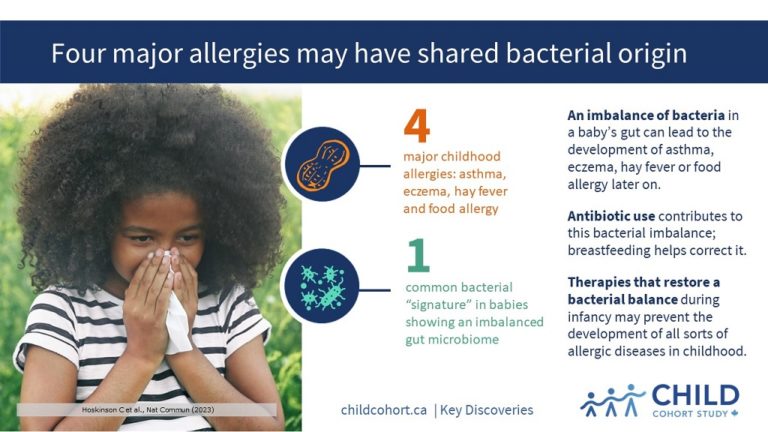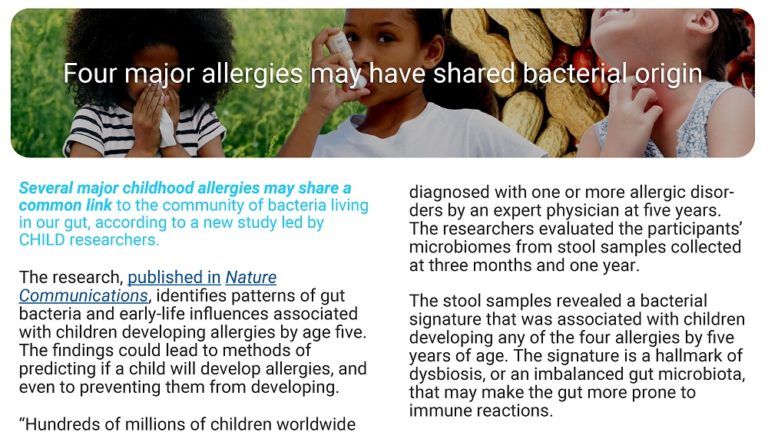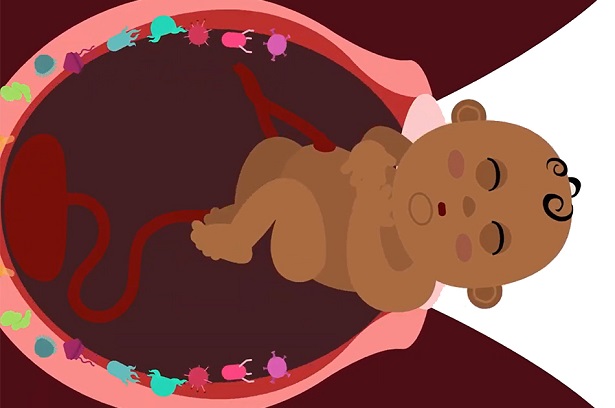Four major allergies may have shared bacterial origin
Several major childhood allergies may share a common link to the community of bacteria living in our gut, according to a new study led by CHILD researchers.
The research, published in Nature Communications and selected as one of its Top 25 Health Sciences Articles of 2023, identifies patterns of gut bacteria and early-life influences associated with children developing allergies by age five. The findings could lead to methods of predicting if a child will develop allergies, and even to preventing them from developing.
“Hundreds of millions of children worldwide suffer from allergies, including one in three children in Canada, and it’s important to understand why this is happening and how it can be prevented,” says CHILD Co-Director Dr. Stuart Turvey, a co-senior author on the study.
The study is one of the first to examine four school-age allergies at once: atopic dermatitis (eczema), asthma, food allergy and allergic rhinitis (hay fever). While these allergic diseases often have unique symptoms, the Turvey lab was curious if they might have a common origin linked to the infant gut microbiome (the community of bacteria living in a baby’s digestive tract).
BACTERIAL “SIGNATURE” FOUND IN STOOL
For the study, the researchers examined the data from 1,115 CHILD participants tracked from birth to age five. Roughly half (523) had no evidence of allergies at any time, while the rest (592) were diagnosed with one or more allergic disorders by an expert physician at five years of age. The researchers evaluated the participants’ microbiomes from stool samples collected at three months and one year.
The stool samples revealed a bacterial signature that was associated with children developing any of the four allergies by five years of age. The signature is a hallmark of dysbiosis, or an imbalanced gut microbiota, that may make the gut more prone to immune reactions.
“Typically, our bodies tolerate the millions of bacteria living in our guts because they do so many good things for our health. Some of the ways we tolerate them are by keeping a strong barrier between them and our immune cells and by limiting inflammatory signals that would call those immune cells into action,” says Courtney Hoskinson, first author on the paper. “We found a common breakdown in these mechanisms in babies prior to the development of allergies.”
A PATHWAY TO PREVENTION
“There are a lot of potential insights from this robust analysis,” says Dr. Turvey. “From these data we can see that factors such as antibiotic use in the first year of life are more likely to result in later allergic disorders, while breastfeeding for the first six months is protective against allergies. This was universal to all the allergic disorders we studied.”
The researchers hope to leverage the findings to inform treatments that correct an imbalanced gut microbiota and may potentially prevent allergies from developing.
“Developing therapies that change these interactions during infancy may prevent the development of all sorts of allergic diseases in childhood, which often last a lifetime,” says Dr. Turvey.
See the Global News report from August 2023 on this finding.






